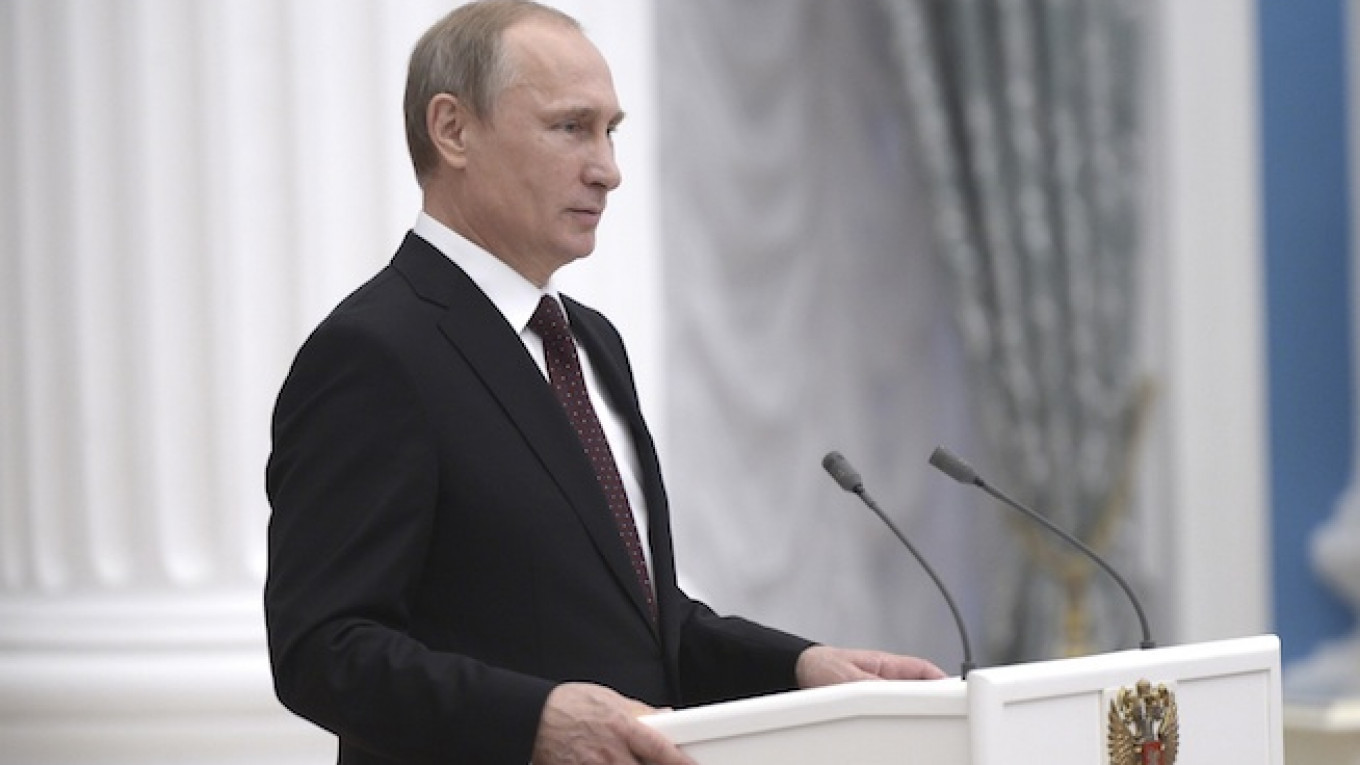President Vladimir Putin has decided to introduce a sales tax on Russian consumers, two sources acquainted with the issue said on Thursday, raising the tax burden earlier than expected as Western sanctions deepen the country's financial woes.
The levy will be applied on a region-by-region basis, allowing each administrative district to decide on a sales tax of up to 3 percent to make up for budget shortfalls, which the Finance Ministry estimates will reach up to 1 trillion rubles ($27.99 billion) in the next three-year budget.
The decision ends a rift among policymakers over whether to introduce a consumer tax or boost a current value-added tax.
"The VAT will not be touched. Sales tax will be up to three percent depending on the decision of the region. Everything will go to the budget of the region," said one of the sources acquainted with the issue.
"It's obvious that a consequence of introducing the tax will be an increase in retail prices by the size of the tax," analysts at Russia's Sberbank said in a report.
They estimated that if all regions introduced the new sales tax this would add up to 2.1 percent to inflation.
"In any event the jump in prices will negatively affect consumption," the Sberbank analysts said, estimating that the tax could reduce consumption by up to 1 percent and gross domestic product by up to 0.5 percent.
Russian Finance Minister Anton Siluanov, however, has said the tax would not add more than 1 percent to the inflation rate, estimating that it would raise around 200 billion rubles ($5.6 billion) a year in additional regional tax revenues.
Pressure
The additional revenue will probably help relieve pressure felt from U.S. and EU sanctions, the latest round of which were announced this week for Russia's role in Ukraine, where the West says Moscow is arming pro-Russian separatists.
The sanctions, which cut off foreign financing for some of Russia's biggest banks and hit arms firms, are likely to further weigh on Russia's $2 trillion economy as it hovers just shy of recession after zero percent growth in the second quarter.
The new sales tax could help compensate for the likely reduction of the contributions state banks and arms sales make to state revenues as a result of the sanctions.
Moody's said sanctions were unlikely to cause an immediate liquidity crisis but would add to factors already weighing on a Russian economy facing stagnation this year and next.
Russian authorities had not been expected to raise taxes until the next presidential election slated for 2018, when Russian authorities are still considering raising income taxes and VAT taxes.
The new consumer tax would take effect from 2015, the sources said. "The decision has been taken. We'll act accordingly," a second source said.
See also:
A Message from The Moscow Times:
Dear readers,
We are facing unprecedented challenges. Russia's Prosecutor General's Office has designated The Moscow Times as an "undesirable" organization, criminalizing our work and putting our staff at risk of prosecution. This follows our earlier unjust labeling as a "foreign agent."
These actions are direct attempts to silence independent journalism in Russia. The authorities claim our work "discredits the decisions of the Russian leadership." We see things differently: we strive to provide accurate, unbiased reporting on Russia.
We, the journalists of The Moscow Times, refuse to be silenced. But to continue our work, we need your help.
Your support, no matter how small, makes a world of difference. If you can, please support us monthly starting from just $2. It's quick to set up, and every contribution makes a significant impact.
By supporting The Moscow Times, you're defending open, independent journalism in the face of repression. Thank you for standing with us.
Remind me later.






